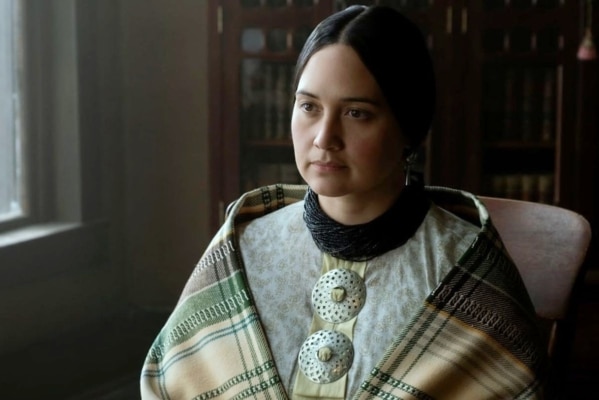Killers of the Flower Moon star Lily Gladstone uses non-binary pronouns. Specifically, she prefers to use she/they pronouns. Though it’s for an unexpected reason.
As explained by Gladstone herself in an interview with People, it’s not actually related to transgenderism. Rather, she uses non-binary pronouns to “decolonize gender.”
Gladstone explains this started when she was 9-years-old. It upset her to see her male cousins get misgendered.
“I remember being 9 years old and just being a little disheartened, seeing how often a lot of my boy cousins were misgendered because they wore their hair long,” she began.
“It happens to a lot of kids, I think, especially Native boys leaving a community where long hair is celebrated [and then] just kind of getting teased for it,” Gladstone continues. “So I remember back then being like, everybody should just be they.”
She also explains that, for example, many Indigenous languages – including Blackfeet – do not use gendered pronouns.
“And in most Native languages, most Indigenous languages, Blackfeet included, there are no gendered pronouns. There is no he/she, there’s only they,” Gladstone adds.
“It doesn’t happen as much anymore, but there’ve been several times in my life where I’ve been speaking to a northern Cheyenne-first language speaker [or another] Indigenous-first language speaker where they’ll accidentally misgender you when they’re talking to you,” says Gladstone. “And then they’ll get embarrassed about it, but it’s because they’ve learned English later.”
“So Blackfeet, we don’t have gendered pronouns, but our gender is implied in our name. But even that’s not binary,” says Gladstone, adding that her grandfather’s Blackfeet name meant “Iron Woman.”
She further explained the situation regarding her grandfather and how she uses her non-binary pronouns to “decolonize gender” for herself:
“He had a name that had a woman’s name in it. I’d never met my grandfather. I wouldn’t say that he was nonbinary in gender, but he was given a woman’s name because he kind of carried himself, I guess, the way that women who have that name do,” continues Gladstone.
“And there were lots of women historically and still now who are given men’s names. They fulfill more of a man’s role in society as far as being provider, warrior, those sort of things,” she says.
“So, yeah, my pronoun use is partly a way of decolonizing gender for myself.”
It’s definitely an interesting perspective on pronouns and how different cultures utilize them. Now we also know why Lily Gladstone chooses to use her pronouns as she does.

